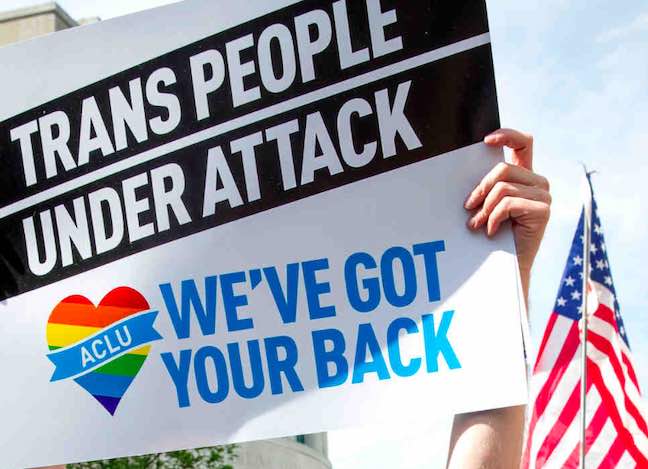
Current positions of the ACLU include opposing the death penalty supporting same-sex marriage and the right of LGBT people to adopt supporting reproductive rights such as birth control and abortion rights eliminating discrimination against women, minorities, and LGBT people decarceration in the United States supporting the rights of prisoners and opposing torture and upholding the separation of church and state by opposing government preference for religion over non-religion or for particular faiths over others. In addition to representing persons and organizations in lawsuits, the ACLU lobbies for policy positions that have been established by its board of directors. Legal support from the ACLU can take the form of direct legal representation or preparation of amicus curiae briefs expressing legal arguments when another law firm is already providing representation. The ACLU provides legal assistance in cases where it considers civil liberties to be at risk. Affiliates of the ACLU are active in all 50 states, the District of Columbia, and Puerto Rico. The ACLU works through litigation and lobbying, and has over 1,800,000 members as of July 2018, with an annual budget of over $300 million. Camera footage may not be altered and cannot be copied for personal use.The American Civil Liberties Union ( ACLU) is a nonprofit organization founded in 1920 "to defend and preserve the individual rights and liberties guaranteed to every person in this country by the Constitution and laws of the United States".Body camera recordings that record people inside their homes, when they would have an elevated expectation of privacy, can be classified as private by the government entity retaining the recording thereby keeping them from disclosure to the general public under GRAMA.Body cameras must be activated during any law enforcement encounter and remain on in an uninterrupted manner until the end of the encounter.Law enforcement agencies must have written policies governing body camera usage and make those policies available to the public.The bill seeks to strike a balance between the needs of law enforcement and the rights of the public. Provisions include guidance for when cameras must be turned on, how footage is to be used, and how recordings are to be retained and disclosed. However, for those agencies that do utilize cameras, the bill sets minimum standards across the state to follow when implementing a body camera program. This bill does not mandate law enforcement agencies to use body cameras. For these reasons, the use of body cameras requires a more thoughtful set of policies to ensure that their use is consistent and predictable across the state and protects the rights of all Utahns equally. However, the selective or inconsistent use of body cameras can skew the potential evidence that recordings provide. The use of body cameras yield better results for both officers and the public. House Bill 300, sponsored by Representative Dan McCay, would set statewide minimum standards for the use of body cameras in Utah protecting the rights of all Utahns and providing predictability in the use of police body cameras.Īcross the country, police are adopting the use of body-worn cameras in response to the desire of the public for more public transparency in the use of force.


That bill ran out of time and this bill is a continuation of that effort. Last year, we worked on and supported legislation to create minimum standards for police body camera usage in 2015 along with ACLU Utah and the Utah Association of Criminal Defense Lawyers. This bill passed the House 64-5 and passed the Senate unanimously. 2016 Bills HB 300: Setting Minimum Standards for Police Body Camera Use


 0 kommentar(er)
0 kommentar(er)
